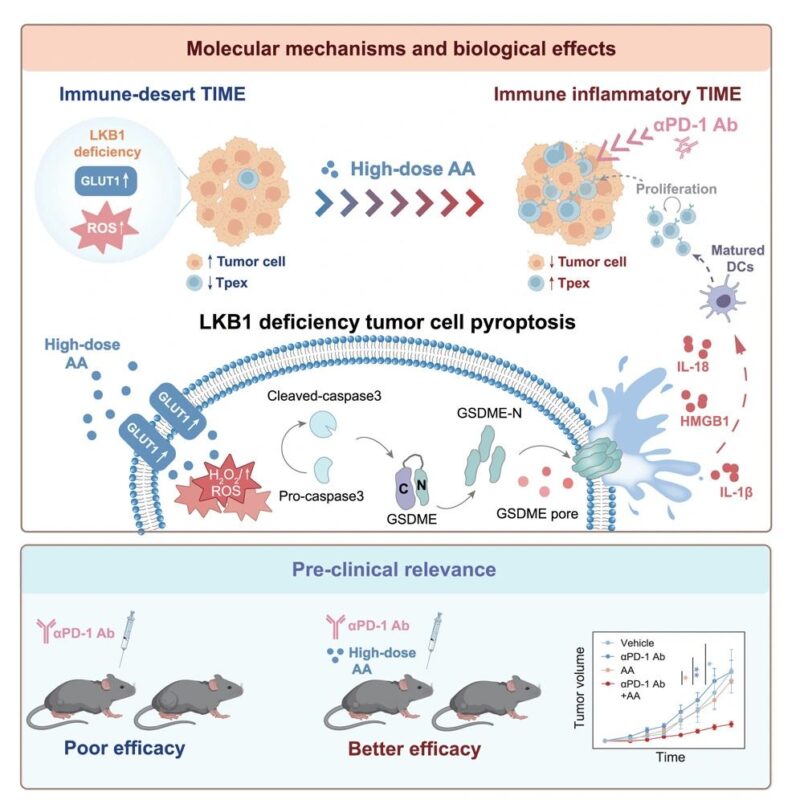
Himanshu Mishra: High-Dose Ascorbic Acid Reverses Immunotherapy Resistance in NSCLC
Himanshu Mishra, Microbiologist at Zydus Lifescience, shared a post on LinkedIn:
“High-dose ascorbic acid selectively induces pyroptosis in LKB1-deficient lung cancer and sensitizes immunotherapy.
Liver kinase B1 (LKB1)-deficient non-small cell lung cancers (NSCLCs) exhibit primary resistance to immune checkpoint inhibitors (ICIs). The redox imbalance inherent in these tumors may represent a potential therapeutic vulnerability. High-dose ascorbic acid (AA) could induce cell redox imbalance.
Here, we uncover that LKB1 deficiency upregulates the transporter GLUT1, which enables the accumulation of AA, thereby exacerbating redox imbalance in NSCLC cells. This triggers pyroptosis in LKB1-deficient NSCLC cells via the H2O2/reactive oxygen species (ROS)-caspase-3-gasdermin-E (GSDME) axis.
In pre-clinical models, high-dose AA reverses ICI resistance and remodels the immune microenvironment, characterized by T cell factor 1 (TCF1)+CD8+ T cell (progenitor-exhausted CD8+ T cell [Tpex]) infiltration. Pyroptosis-driven immunogenic cell death (ICD) promotes cross-presenting dendritic cell (DC) maturation, which drives Tpex proliferation.
Crucially, in Batf3−/− mice lacking functional CD103+ DC populations, both Tpex expansion and therapeutic benefits are abrogated, confirming DC dependence. In addition, GSDME is validated as a gatekeeper of pyroptosis-driven antitumor immunity. This work provides a rationale for clinical trials combining ICI with high-dose AA.
Highlights:
- GLUT1-mediated AA loading enhances redox stress in LKB1-deficient NSCLC.
- High-dose AA induces pyroptosis in LKB1-deficient NSCLC via the ROS-caspase-3-GSDME pathway.
- High-dose AA-triggered pyroptosis activates DCs to drive Tpex expansion.
- High-dose AA enhances the response of LKB1-deficient NSCLC to anti-PD-1 therapy.”

More posts featuring Himanshu Mishra.
-
Challenging the Status Quo in Colorectal Cancer 2024
December 6-8, 2024
-
ESMO 2024 Congress
September 13-17, 2024
-
ASCO Annual Meeting
May 30 - June 4, 2024
-
Yvonne Award 2024
May 31, 2024
-
OncoThon 2024, Online
Feb. 15, 2024
-
Global Summit on War & Cancer 2023, Online
Dec. 14-16, 2023
